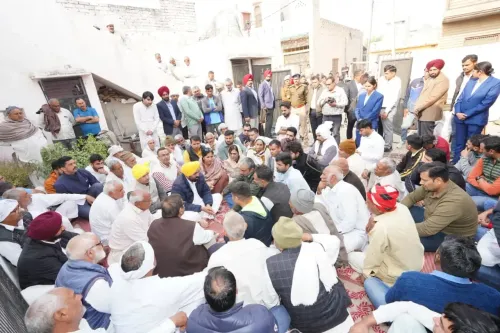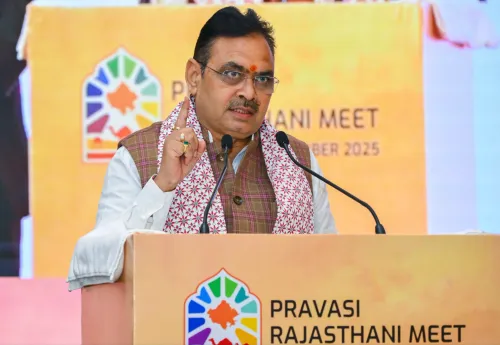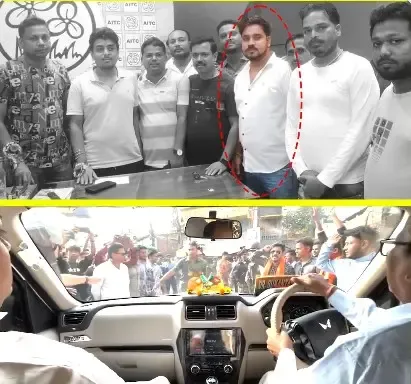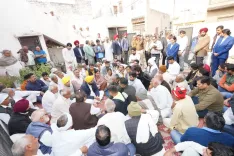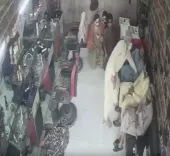Should the Court Serve as a Battleground for Political Disputes? Former CJI Gavai Weighs In on the 'Vote Chori' Controversy (IANS Exclusive)
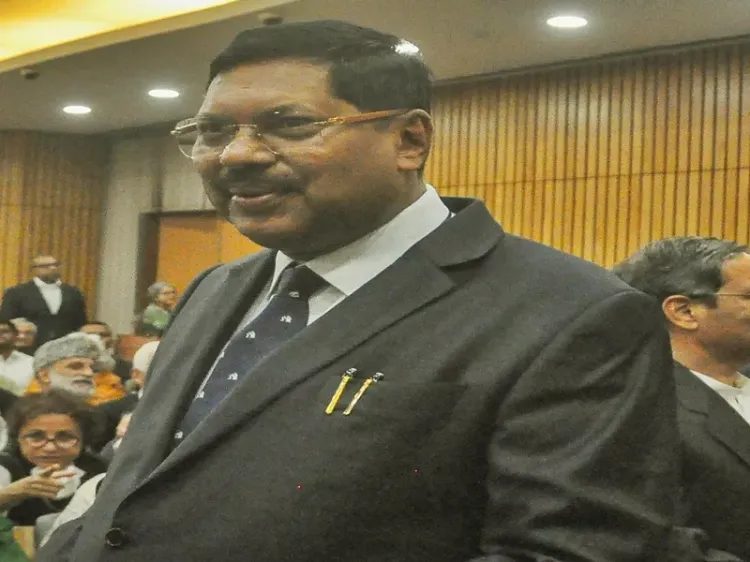
Synopsis
Key Takeaways
- Supreme Court should remain neutral in political matters.
- Political battles must be resolved by the electorate.
- Judicial forums should not settle political disputes.
- Misuse of investigative agencies for political purposes is unacceptable.
- Former CJI Gavai's legal career highlights commitment to the rule of law.
New Delhi, Nov 27 (NationPress) Former Chief Justice of India B.R. Gavai expressed on Thursday that the Supreme Court must not be leveraged as a stage for political skirmishes. His comments came after the court opted not to entertain a petition requesting a Special Investigation Team (SIT) inquiry into claims of electoral fraud made by Leader of the Opposition in Lok Sabha (LoP) and Congress MP Rahul Gandhi.
In October, the Supreme Court had dismissed a PIL that called for a court-supervised investigation into alleged discrepancies in electoral rolls, recommending that the petitioner seek resolution from the Election Commission of India (ECI).
Speaking exclusively to IANS, former CJI Gavai stated, “I have consistently asserted that the court should not be utilized as a medium for political disputes. The judicial system should not be a platform for political conflicts; these should be addressed at the ballot box.”
He emphasized that judicial venues ought not to become instruments for resolving political issues.
“There have been numerous instances where charges were brought against politicians. I have publicly stated that neither central nor state investigative bodies should be exploited for political ends. During my tenure, I dealt with two such cases — one involving senior politicians from Karnataka facing Enforcement Directorate actions, and another concerning a Member of Parliament from the ruling party,” he explained.
“In both instances, I clarified that investigative resources cannot be employed to settle political scores. I provided relief in both matters because political contests should be resolved by the electorate—not in the judiciary,” Justice Gavai remarked.
Meanwhile, LoP Gandhi has persistently accused the BJP government and the Election Commission of facilitating “vote theft,” bringing this issue to light in Haryana and Karnataka.
The Congress has also staged public demonstrations in Delhi and Bihar regarding these allegations.
In response, 272 notable citizens—including retired judges, bureaucrats, and military officials—issued an open letter denouncing attempts to undermine constitutional institutions, including the ECI.
Justice B.R. Gavai, the 52nd Chief Justice of India, has had a remarkable legal career. Although he began his legal practice in 1985, he was acquainted with the rule of law early in life, having been raised in a family committed to social activism. Throughout his career—as an advocate, judge of the Bombay High Court, Supreme Court justice, and ultimately as CJI—Justice Gavai showed profound dedication to judicial efficiency and the rule of law. His rulings sparked discussions both in courtrooms and on digital platforms, significantly contributing to Indian jurisprudence.
Justice Gavai was sworn in as the 52nd CJI on May 14, succeeding Justice Sanjiv Khanna. His name was recommended by Justice Khanna on April 16 and approved by the Law Ministry on April 29. His appointment was historic as he became the first Buddhist and only the second Chief Justice from the Scheduled Caste community after Justice K.G. Balakrishnan to assume the role.


